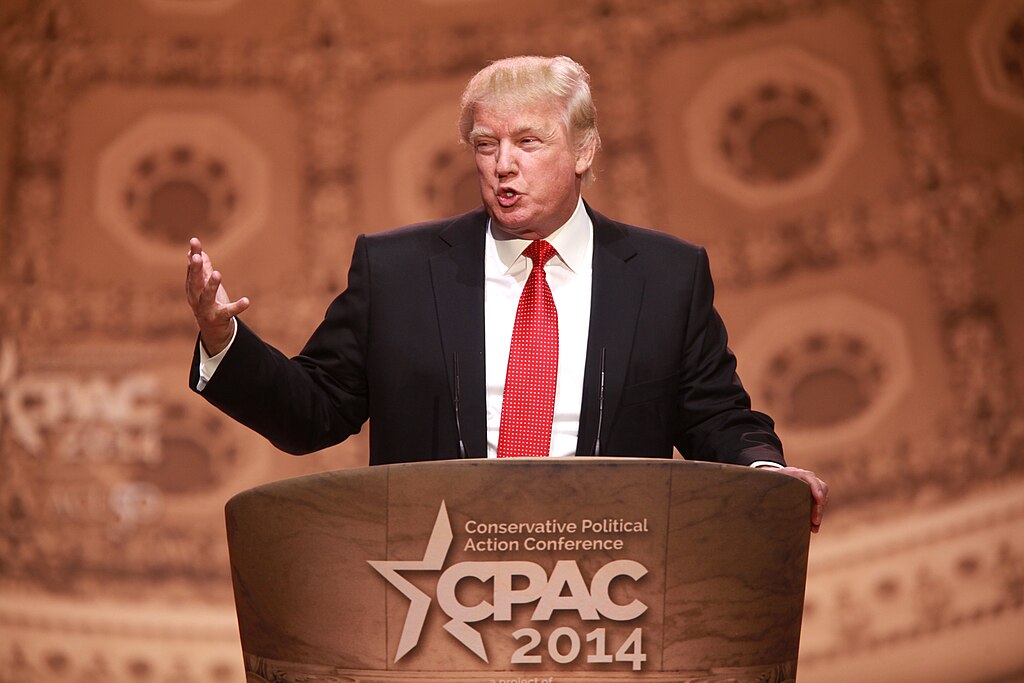Former President Donald Trump criticized Vice President Kamala Harris during a recent rally, declaring that her four years in office have brought “nothing but economic hell for American workers.” Trump's remarks were part of a broader campaign message aimed at rallying his base and drawing attention to what he describes as the failures of the current administration. He specifically highlighted alarming job loss statistics, claiming that 30,000 private sector jobs were eliminated in a single month and nearly 100,000 manufacturing jobs have disappeared since the start of the year.
“Four years of Kamala have delivered nothing but economic hell for American workers,” Trump stated emphatically, his voice resonating with the audience. “In just one month, we lost 30,000 private sector jobs. Since January, almost 100,000 manufacturing jobs have been wiped out.” His comments come as part of a larger narrative that positions Trump as a defender of American labor, particularly in the manufacturing sector, which has been crucial to his appeal among working-class voters.
The former president’s remarks echo a sentiment felt by many in the Rust Belt and other regions heavily reliant on manufacturing. These areas have experienced significant job losses in recent years, often attributed to a combination of factors including globalization, automation, and the impact of the COVID-19 pandemic. Trump’s focus on these statistics is an attempt to resonate with voters who feel economically insecure and disillusioned with current policies.
Critics of Trump, however, argue that his statements oversimplify a complex issue and that attributing job losses solely to the Harris administration ignores the broader economic factors at play. “While job losses are a serious concern, to pin all the blame on one person is misleading,” said Dr. Rachel Johnson, an economist at the Brookings Institution. “Job markets fluctuate due to numerous factors, and the pandemic has had lasting impacts that extend beyond the political landscape.”
Furthermore, the statistics Trump provided have been met with scrutiny. Experts suggest that while job losses have indeed occurred, the broader context must be taken into account. The manufacturing sector, for instance, has seen a post-pandemic recovery in some areas, and attributing all losses to the current administration may not accurately reflect the realities of the labor market.
Trump’s comments are part of a larger strategy to galvanize support by focusing on economic issues that resonate deeply with voters. His campaign has consistently emphasized the importance of revitalizing American manufacturing and restoring jobs lost to globalization and technological advancements. By framing the election as a choice between his leadership and what he describes as Harris’s failures, Trump aims to motivate his base and attract undecided voters concerned about their economic futures.
As Election Day approaches, the impact of Trump’s rhetoric on the job market and the economy remains to be seen. His stark portrayal of the current administration’s economic record seeks to evoke a sense of urgency among voters, reinforcing his position as a champion of American workers. With strong emotions running high, Trump’s ability to effectively convey his message could be pivotal in shaping the election’s outcome.



 Trump Signs Executive Order Threatening 25% Tariffs on Countries Trading With Iran
Trump Signs Executive Order Threatening 25% Tariffs on Countries Trading With Iran  Taiwan Says Moving 40% of Semiconductor Production to the U.S. Is Impossible
Taiwan Says Moving 40% of Semiconductor Production to the U.S. Is Impossible  Ghislaine Maxwell to Invoke Fifth Amendment at House Oversight Committee Deposition
Ghislaine Maxwell to Invoke Fifth Amendment at House Oversight Committee Deposition  Japan Election 2026: Sanae Takaichi Poised for Landslide Win Despite Record Snowfall
Japan Election 2026: Sanae Takaichi Poised for Landslide Win Despite Record Snowfall  Trump Backs Nexstar–Tegna Merger Amid Shifting U.S. Media Landscape
Trump Backs Nexstar–Tegna Merger Amid Shifting U.S. Media Landscape  Japan’s Prime Minister Sanae Takaichi Secures Historic Election Win, Shaking Markets and Regional Politics
Japan’s Prime Minister Sanae Takaichi Secures Historic Election Win, Shaking Markets and Regional Politics  New York Legalizes Medical Aid in Dying for Terminally Ill Patients
New York Legalizes Medical Aid in Dying for Terminally Ill Patients  Netanyahu to Meet Trump in Washington as Iran Nuclear Talks Intensify
Netanyahu to Meet Trump in Washington as Iran Nuclear Talks Intensify  China Warns US Arms Sales to Taiwan Could Disrupt Trump’s Planned Visit
China Warns US Arms Sales to Taiwan Could Disrupt Trump’s Planned Visit  Sydney Braces for Pro-Palestine Protests During Israeli President Isaac Herzog’s Visit
Sydney Braces for Pro-Palestine Protests During Israeli President Isaac Herzog’s Visit  US Pushes Ukraine-Russia Peace Talks Before Summer Amid Escalating Attacks
US Pushes Ukraine-Russia Peace Talks Before Summer Amid Escalating Attacks  Trump Allows Commercial Fishing in Protected New England Waters
Trump Allows Commercial Fishing in Protected New England Waters  India–U.S. Interim Trade Pact Cuts Auto Tariffs but Leaves Tesla Out
India–U.S. Interim Trade Pact Cuts Auto Tariffs but Leaves Tesla Out  U.S. Lawmakers to Review Unredacted Jeffrey Epstein DOJ Files Starting Monday
U.S. Lawmakers to Review Unredacted Jeffrey Epstein DOJ Files Starting Monday  Trump Says “Very Good Talks” Underway on Russia-Ukraine War as Peace Efforts Continue
Trump Says “Very Good Talks” Underway on Russia-Ukraine War as Peace Efforts Continue  Trump Administration Appeals Court Order to Release Hudson Tunnel Project Funding
Trump Administration Appeals Court Order to Release Hudson Tunnel Project Funding  Nicaragua Ends Visa-Free Entry for Cubans, Disrupting Key Migration Route to the U.S.
Nicaragua Ends Visa-Free Entry for Cubans, Disrupting Key Migration Route to the U.S. 































